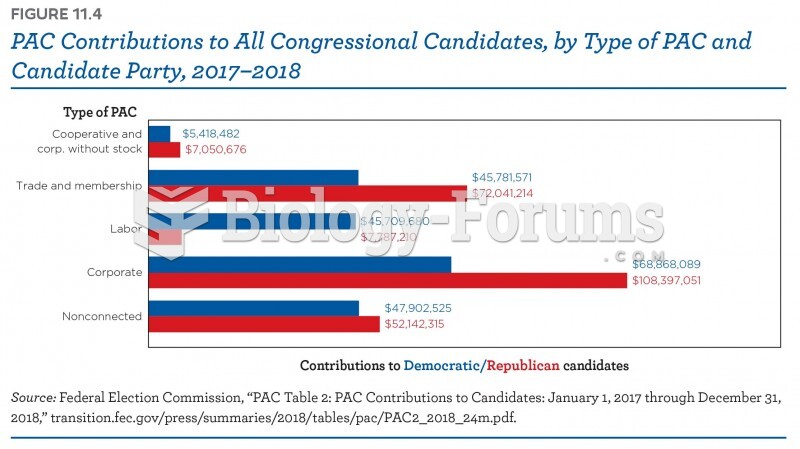|
|
|
The people with the highest levels of LDL are Mexican American males and non-Hispanic black females.
The senior population grows every year. Seniors older than 65 years of age now comprise more than 13% of the total population. However, women outlive men. In the 85-and-over age group, there are only 45 men to every 100 women.
For pediatric patients, intravenous fluids are the most commonly cited products involved in medication errors that are reported to the USP.
Disorders that may affect pharmacodynamics include genetic mutations, malnutrition, thyrotoxicosis, myasthenia gravis, Parkinson's disease, and certain forms of insulin-resistant diabetes mellitus.
Aspirin is the most widely used drug in the world. It has even been recognized as such by the Guinness Book of World Records.







